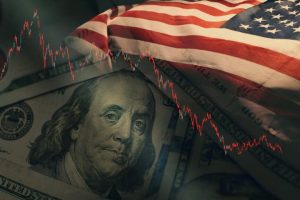Tariff policies have consumers and investors alike up in arms. But they shouldn’t have come as a surprise.
Tariffs were a focal point of President Trump’s campaign. And he made it very clear that he was looking to impose tariffs on a number of key trade partners.
💵💰Don’t miss the move: Subscribe to TheStreet’s free daily newsletter 💰💵
But when the Trump administration’s official tariff policies were announced on April 2, it was enough to send markets reeling.
Related: Trump tariff showdown could have huge impact on housing market
The tech-heavy Nasdaq was plunged into bear market territory for the first time in more than two years. Investors who check their portfolios this week could be in for some shocking numbers on screen.
Investors are concerned that Trump’s tariffs will fuel an all-out trade war. This could not only drive the cost of goods upward but also lead to widespread unemployment.
From there, the combination of higher levels of unemployment and costlier goods could prompt consumers to conserve funds and spend less. And such a broad decline in spending could push the economy into recession territory.
President Trump is adamant that his tariff policies will reverse the country’s trade deficit and have other positive impacts. But so far, the consensus among financial experts is that in the near term, tariffs could do more harm than good.
Goldman Sachs economists just raised the odds that the U.S. will fall into a near-term recession from 35% to 45%. JPMorgan puts the odds of a recession all the way up at 60%.
Meanwhile, consumers have been patiently waiting for the Federal Reserve to cut interest rates. The central bank made a few modest cuts in late 2024 but has held rates steady since the start of 2025.
Related: Fed interest rate pauses may rattle markets with economic uncertainty
The Federal Reserve is committed to reaching its 2% inflation target. The most recent Consumer Price Index (CPI) measured annual inflation at 2.8%.
There’s reason to believe that tariffs will drive consumer prices up even more. If inflation persists or worsens, the Fed will be that much less likely to offer consumers relief in the form of lower interest rates.
On the other hand, there’s now more pressure on the Fed to lower rates to offset the impact of a slowing economy because of tariffs.
An uptick in unemployment could push the Fed toward rate cuts. But by the time that happens, much of the economic damage will already have been done.
BlackRock CEO Larry Fink does not seem to have high hopes for the economy in light of tariff policies.
